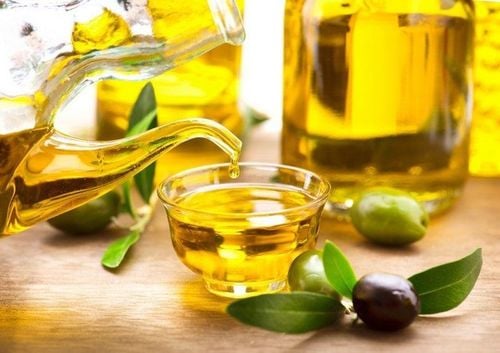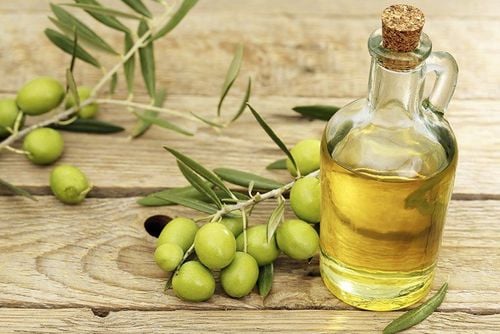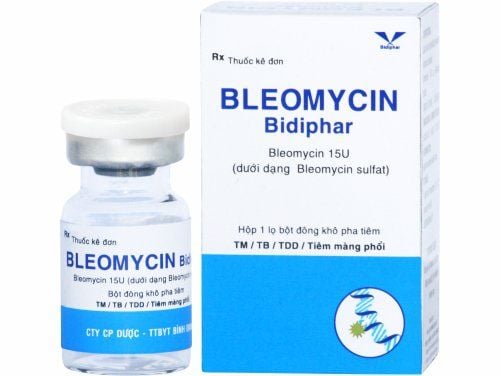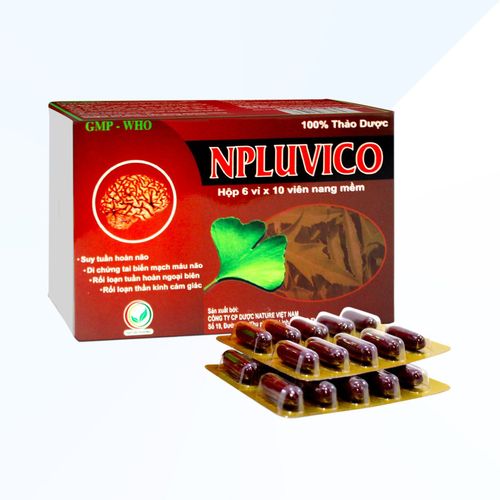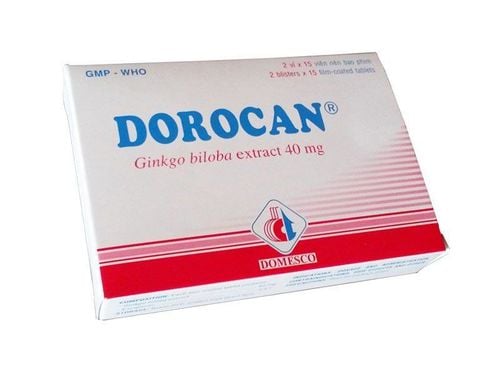This is an automatically translated article.
Most people consider Extra Virgin olive oil to be extremely healthy. In the Mediterranean diet, this oil is traditionally a staple food. Studies show that the fatty acids and antioxidants in olive oil may offer some powerful health benefits, including a reduced risk of heart disease.
1. What is olive oil and how is it made?
Olive oil is the oil extracted from the fruit of the olive tree. The production process is extremely simple. Olives can be pressed to extract the oil by traditional methods. But in modern methods, olives are crushed, mixed, and then extracted by centrifuge. After centrifugation, a small amount of oil remains in the residue. The remaining oil can be extracted using chemical solvents and is known as olive pomace oil. This oil is usually cheaper than regular olive oil.
There are three main types of olive oil: refined oil, virgin oil and extra virgin olive oil. Extra virgin olive oil is less processed or refined. Extra virgin olive oil is considered the healthiest olive oil. It is extracted by natural methods and standardized for purity and measured by certain senses such as taste and smell. Extra virgin olive oil is actually a pure oil that has a distinct flavor and is high in phenolic antioxidants, which is the main reason why it is so precious.
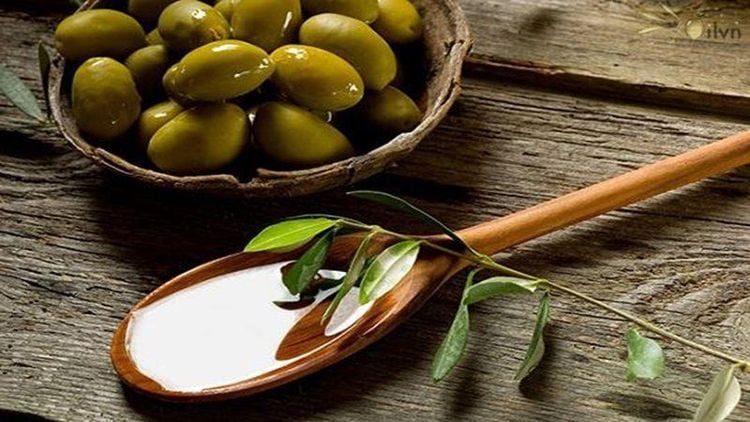
Dầu oliu Extra virgin là một loại dầu tinh khiết có hương vị riêng biệt
2. Nutritional composition of Extra Virgin Olive Oil
Extra virgin olive oil is quite nutritious. It contains moderate amounts of vitamins E, K and many beneficial fatty acids. One tablespoon (13.5 grams) of olive oil contains the following:
Saturated fat: 14% Monounsaturated fat: 73% (mostly oleic acid) Vitamin E: 13% of the value day (DV) Vitamin K: 7% of the DV Notably, extra virgin olive oil has a high antioxidant effect. Antioxidants are biologically active and some of them can help fight serious diseases. The oil's main antioxidants include oleocanthal, oleuropein, a substance that protects LDL (bad) cholesterol from oxidation.
Some people attribute olive oil to its high omega-6 to omega-3 ratio (above 10:1). However, its total polyunsaturated fat content is still relatively low, so this is not a cause for concern.
3. Extra virgin olive oil contains anti-inflammatory agents
Chronic inflammation is believed to be one of the leading causes of many diseases, including heart disease, cancer, metabolic syndrome, diabetes, and arthritis. Some argue that olive oil has anti-inflammatory properties. Oleic acid, the fatty acid in olive oil, has been shown to reduce inflammatory markers such as C-reactive protein. However, the oil's main anti-inflammatory effects appear to be due to its antioxidants, mainly oleocanthal , which has been shown to work like ibuprofen, a popular anti-inflammatory drug.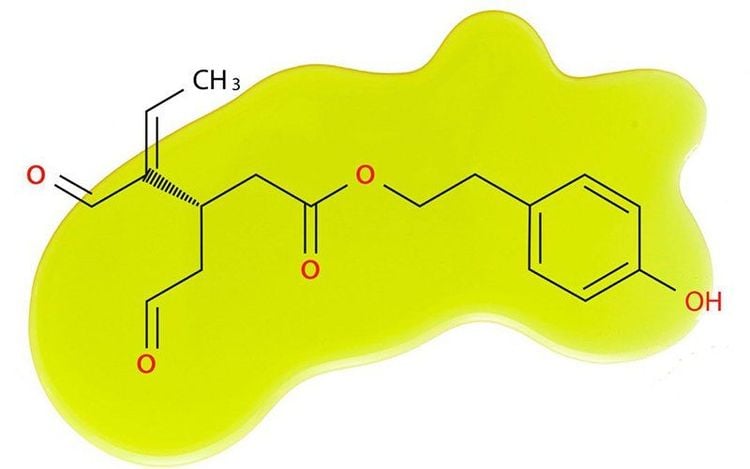
Tác dụng chống viêm chính của dầu oliu chủ yếu do chứa oleocanthal
Researchers estimate that the amount of oleocanthal in 50ml (about 3.4 tablespoons) of extra virgin olive oil has the same effect as 10% of an adult dose of ibuprofen for pain relief. In addition, research shows that substances in olive oil can reduce the expression of genes and proteins that mediate inflammation. Remember that chronic, low-grade inflammation is usually quite mild, and it takes years or decades for it to cause serious effects. Using extra virgin olive oil can help prevent this from happening, leading to a reduced risk of various inflammatory diseases, especially heart disease.
4. Extra virgin olive oil and heart disease
Cardiovascular diseases, such as heart disease and stroke are among the most common causes of death in the world. Many observational studies show that mortality from these diseases is low in some areas, especially in countries around the Mediterranean Sea.
This observation initially fueled interest in the Mediterranean diet. Studies on the Mediterranean diet suggest it may help prevent heart disease. In one large study, it resulted in a 30% reduction in heart attacks, strokes and deaths. Extra virgin olive oil protects against heart disease through multiple mechanisms such as:
Reduce inflammation: Olive oil protects against inflammation, a key driver of heart disease Reduces oxidation of LDL (bad) cholesterol: Protective oil Protects LDL particles from oxidative damage, a key factor in the development of heart disease Improves blood vessel health: Olive oil improves the function of the endothelium, which is the lining of blood vessels
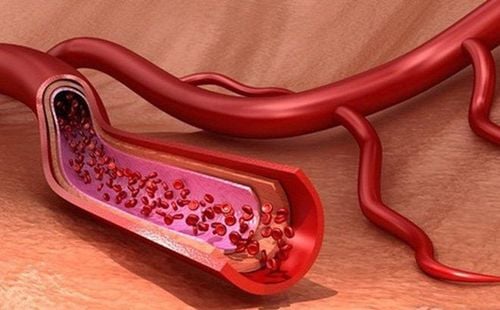
Dầu ô liu cải thiện chức năng của lớp lót của các mạch máu
Helps manage blood clotting: Some studies show that olive oil can help prevent unwanted blood clotting, a key feature of heart attacks and strokes. Lowers blood pressure: A study in patients with hypertension found that olive oil significantly reduced blood pressure and reduced the need for blood pressure medication by 48%. Given the biological effects of olive oil, it is not surprising that people who consume it are less likely to die from heart attacks and strokes. Dozens and hundreds of animal and human studies have shown that olive oil has major heart benefits. In fact, the evidence is strong enough to recommend that people with or at high risk of heart disease include extra virgin olive oil in their diet.
5. Other Health Benefits of Olive Oil
Although olive oil has mainly been studied for its effects on heart health. However, its consumption has also been linked to a number of other health benefits.
5.1. Olive oil and cancer Cancer is a common cause of death and is characterized by uncontrolled growth of cells. Studies have shown that people living in Mediterranean countries have a fairly low risk of cancer, and some have speculated that olive oil has something to do with this.
One potential contributor to cancer is oxidative damage caused by harmful molecules called free radicals. However, extra virgin olive oil is high in antioxidants that reduce oxidative damage. The oleic acid in olive oil is also highly antioxidant and has been shown to have beneficial effects on cancer-related genes. Many studies have observed that compounds in olive oil can help fight cancer at the molecular level.
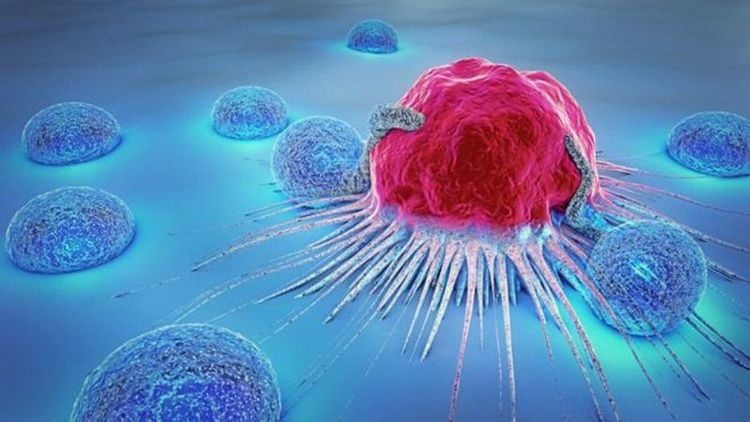
Các axit trong dầu oliu có tác dụng có lợi đối với các gen liên quan đến ung thư
5.2. Olive oil and Alzheimer's disease Alzheimer's disease is the most common neurodegenerative disease in the world and a leading cause of dementia. One feature of Alzheimer's disease is the accumulation of protein disorders called beta-amyloid plaques in certain nerve cells in the brain.
A study in rats observed that a substance in olive oil can help clear these plaques. Additionally, a controlled human study found that a Mediterranean diet enriched with olive oil improved brain function and reduced the risk of cognitive decline.
6. Can cook with olive oil
During cooking, fatty acids can oxidize, which means they react with oxygen and break down. For this reason, saturated fats without double bonds are highly heat resistant. Meanwhile, polyunsaturated fats with many double bonds are very sensitive and become damaged.
Olive oil contains mostly monounsaturated fatty acids, has only one double bond and is highly heat resistant. In one study, researchers heated extra virgin olive oil to 180°C for 36 hours. Another study used olive oil for deep frying and it took about 24 to 27 hours for it to reach harmful levels
Overall, olive oil appears to be very safe even when cooked at fairly high temperatures. For those who have heart disease or are at high risk of developing it, olive oil is definitely a superfood. The benefits of this amazing fat are one of the few that almost every nutritionist agrees to include in the diet.
To register for examination and treatment at Vinmec International General Hospital, you can contact Vinmec Health System nationwide, or register online HERE.
Reference source: healthline.com




